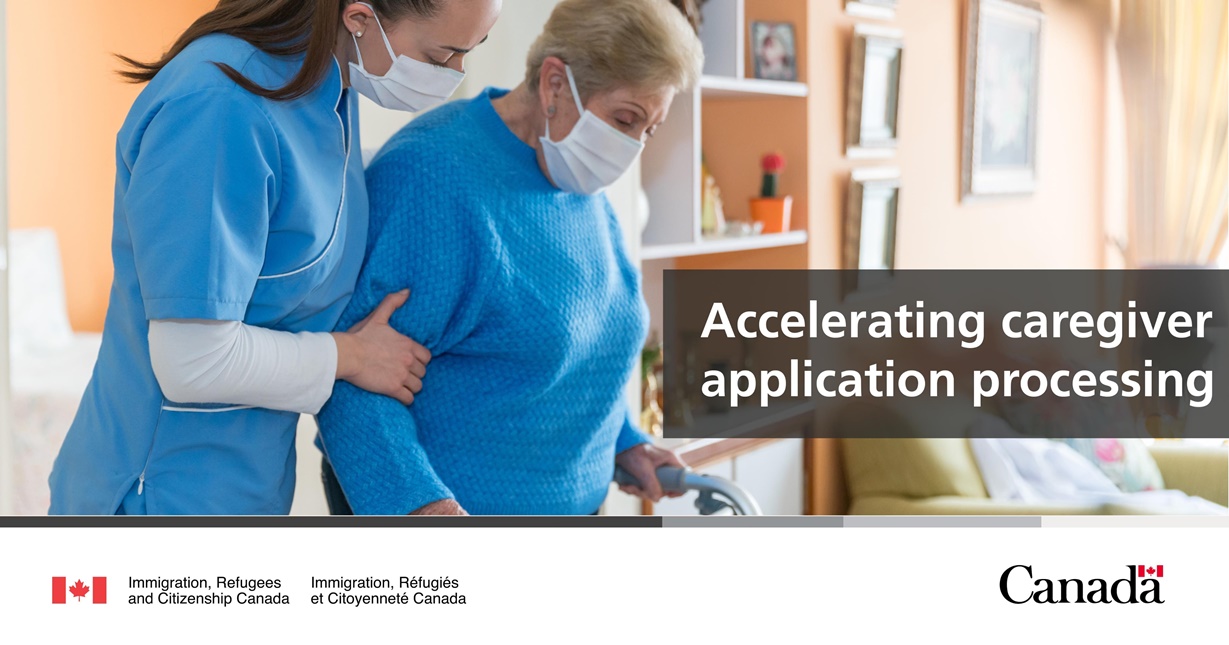

Minister Mendicino Launches Plan to Accelerate Caregiver Application Processing
Caregivers from abroad play an important role in supporting the care needs of Canadian families across the country. Caregivers have come to Canada for decades to provide in-home care and support to Canadians, and in response Canada has made available pathways to permanent residence for these workers.
The Home Child Care Provider and Home Support Worker pilots opened for applications on June 18, 2019 and will run until June 17, 2024. The caregiver pilots are designed to provide a clear, direct pathway to permanent residence for foreign in-home caregivers. The skills, abilities, and experience of those working in these occupations are essential to Canada’s economic immigration objectives and will continue to support the country’s long-term economic recovery, growth, and prosperity.
Immigration, Refugees, and Citizenship Canada (IRCC) is committed to recognizing the significant contributions that caregivers make to Canadian families every day. To continue supporting these workers and the families who employ them, special measures are being introduced to ensure caregiver immigration returns to normal processing after significant disruptions caused by the COVID-19 pandemic.
This public policy will facilitate the granting of permanent residence for caregivers who applied under the Home Child Care Provider Class or the Home Support Worker Class in 2020, but whose application was not entered into processing due to delays related to the COVID-19 pandemic.
The COVID-19 pandemic has caused great disruption to life in Canada and around the world, including to application processing at IRCC. This has meant that most applications received in 2020 under these Pilots could not be processed during that year. In the absence of this public policy, significant negative impacts on future processing limits, and on clients would have resulted, including multiple year processing delays, and uncertainty for both caregivers and the families who employ them.
As such, I hereby establish that, pursuant to my authority under section 25.2 of the Immigration and Refugee Protection Act (the Act), there are sufficient public policy considerations that justify the granting of permanent resident status or an exemption from certain requirements of the Immigration and Refugee Protection Regulations (the Regulations), to foreign nationals who meet the eligibility criteria and conditions listed below.
Based on public policy considerations, delegated officers may grant permanent resident status to foreign nationals who meet the following conditions.
The foreign national:
For the purpose of assessing (b), the date the application is made is deemed to be the date on which the application described in (a) was received by the designated office. This same date is also to be used as the lock-in date for the purpose of determining whether a child is a dependent child when assessing the eligibility of the family members below.
In-Canada family members of a principal applicant under this public policy are eligible to be granted permanent residence pursuant to this public policy if they meet the following conditions:
Based on public policy considerations, when processing an application for a permanent resident visa, delegated officers may grant an exemption from the requirements of the Regulations identified below when a foreign national meets the following conditions:
This public policy comes into effect upon signature.
Page: 1 2
What are the requirements for becoming a Canadian citizen? To become a Canadian citizen, you…
Writing a letter of invitation doesn’t mean you’re legally responsible for the visitor once they…
As of January 28, 2025, Immigration, Refugees and Citizenship Canada (IRCC) has updated the health…
The Super Visa is a multiple-entry temporary resident visa (TRV), issued with a validity of…
The Super Visa is a multiple-entry temporary resident visa (TRV), issued with a validity of…
If you applied for a new temporary resident visa, or a study or temporary work…